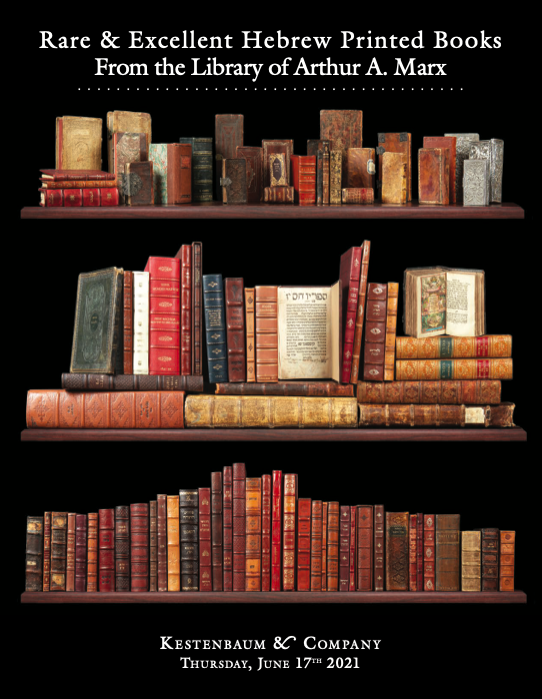Sepher Yuchasin [“Book of Genealogies” - onomasticon and history].

Auction 94 |
Thursday, June 17th,
2021 at 11:00am
Rare & Excellent Hebrew Printed Books: From the Library of Arthur A. Marx
Lot 474
ZACUTO, ABRAHAM.
Sepher Yuchasin [“Book of Genealogies” - onomasticon and history].
Constantinople: Solomon Ya’avetz 1566
Est: $25,000 - $30,000
PRICE REALIZED $32,000
<<First Edition of one of the most important classical works of Jewish History. Highly Scarce.>>
The Sepher Yuchasin outlines the historical development of the Oral Law and establishes the chronology of the Sages who transmitted it. It also chronicles the history of various nations along with the state of scientific research and general scholarship, the narrative reaches the author’s day (the Spanish Expulsion).
Abraham Zacuto (1452-1515) was the court astronomer and historiographer of King Juan II of Portugal. Famously, Vasco da Gama used Zacuto’s astrolabe and instructions for his voyage to India. For an historical appreciation of Zacuto, see A. Neumann, Abraham Zacuto-Historiographer in: H. A. Wolfson Jubilee Volume (1965) vol. II, pp. 597-629.
A. H. Freimann, in his introduction to the scholarly “complete” edition of the Sepher Yuchasin, states the first Constantinople edition is extremely rare and that “[only a few copies]… are to be found today in the entire world.” See Sepher Yuchasin Hashalem (1963) Introduction, p. xxi.
Freimann cites Steinschneider’s belief that this 1566 edition was banned or hidden because of Zacuto’s defiant statement that the Zohar was not composed by R. Shimon bar Yochai. The second edition of the Yuchasin, (Cracow 1580-81) omits the whole section on the authorship of the Zohar as well as another chapter pertaining to Jesus (see M. Steinschneider, Die Geschichsliteratur der Juden (1905) p.89). Roest (Yodea Sepher no. 686), also states that the rabbis who approved the publication of the second edition, omitted “large important parts because of their fear of the Nations and the people of the Kabbalah.”
The scarcity of the present 1566 edition is further attested to by the great desire of R. Jacob Emden to obtain a copy. Roest (Yodea Sepher no. 685) cites R. Emden: “I did not rest until I obtained it from a distant land at great expense. My messenger sought to appropriate it for himself…since he saw my great hunt and pursuit of it…he wanted to keep it and brag to the men of wealth… With great strength I rescued it…it was a miracle” (see Mitpachath Sepharim, f. 5a).
For more on the significance of this marvelous work within its historical context, see H. Yerushalmi, Zakhor: Jewish History and Memory (2011) pp. 57-75.
